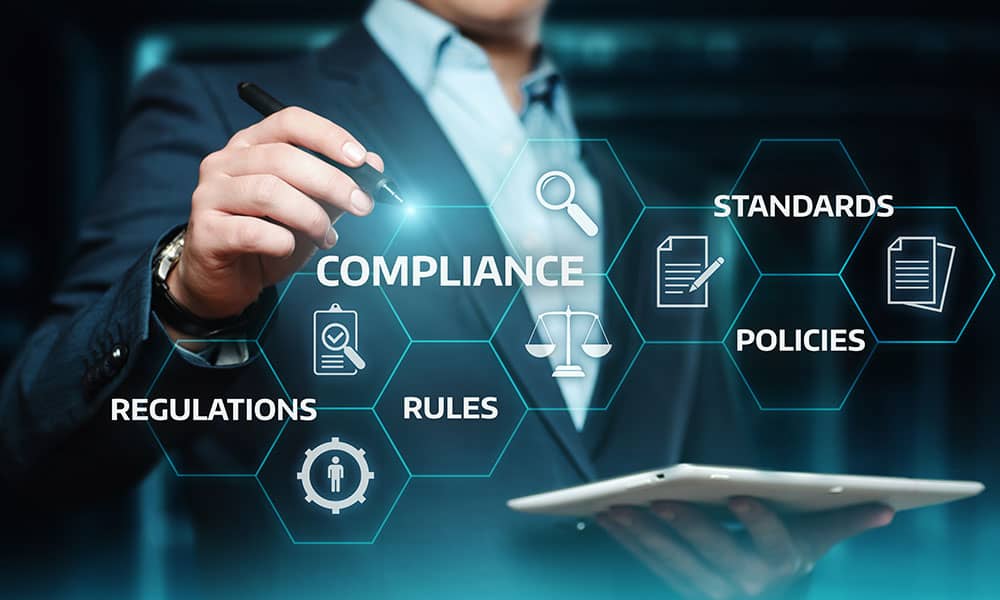Understanding Key Regulations
Wet wipes manufacturers need to navigate the regulatory environment to guarantee the safety, efficacy, and compliance of their goods with both national and international standards. The sector is governed by several regulatory agencies and frameworks, each having its own distinct needs and norms.
FDA (Food and Drug Administration)
The FDA in the United States has a crucial role in the regulation of wet wipes, particularly those that are categorized as medical devices or cosmetics. Compliance with FDA rules is obligatory for wipes designed for medical purposes, such as disinfection wipes or those used in medical procedures. These rules include areas such as the safety of ingredients, the procedures involved in manufacture, and the requirements for labeling. Cosmetic wipes, similar to face cleansers, are subject to FDA examination, necessitating producers to guarantee that their goods are free from hazardous ingredients and have appropriate labeling. Comprehending and following the FDA regulations aids in avoiding product recalls and legal complications, therefore guaranteeing customer safety and confidence.
EPA (Environmental Protection Agency)
The Environmental Protection Agency (EPA) specifically targets the ecological consequences of throwaway items, such as wet wipes. Wet wipes manufacturers must consider the whole lifespan of their goods, including all stages from manufacture to disposal. The Environmental Protection Agency (EPA) offers rules for the use of certain chemicals and materials that have the potential to cause damage to the environment. An example of this is the existence of non-biodegradable polymers in wet wipes, which may cause substantial environmental contamination, especially in aquatic ecosystems. Adhering to EPA standards often entails using environmentally friendly materials, adopting sustainable production methods, and furnishing explicit directions for consumer disposal. Manufacturers may diminish their environmental impact and meet the increasing customer demand for sustainable goods by following these suggestions.
REACH (Registration, Evaluation, Authorisation, and Restriction of Chemicals)
REACH is a crucial regulatory framework in the European Union that governs the use of chemical compounds in a wide range of goods, including wet wipes. Wet wipes manufacturers are obligated by REACH to register and provide comprehensive information about the chemicals they use, therefore guaranteeing that these compounds undergo safety evaluation. The legislation is designed to safeguard human health and the environment against possible hazards presented by chemicals. Wet wipes manufacturers of wet wipes must guarantee that all chemicals used in their goods adhere to the regulations set out by REACH. This entails doing comprehensive safety evaluations and offering clear and open information on the chemicals to regulatory agencies and consumers. Adhering to REACH not only fulfills legal requirements but also boosts the reputation of wet wipes manufacturers in the European market.
BSI (British Standards Institution)
The British Standards Institution (BSI) is responsible for establishing and maintaining standards for ensuring the safety and quality of products in the United Kingdom. The standards include a wide range of elements related to the manufacture of wet wipes, such as materials, production techniques, and procedures for testing. BSI standards assure the safety and high-quality standards of wet wipes. Wet wipes manufacturers must adhere to BSI standards, which require them to employ rigorous quality control methods and constantly check the performance of their products. Wet wipes manufacturers may boost their marketability and customer trust by adhering to these requirements and obtaining certification.
Comprehending and adhering to these essential requirements is crucial for makers of wet wipes. It guarantees the safety, environmental friendliness, and fulfillment of customer expectations for goods. Remaining knowledgeable about regulatory modifications and actively adjusting to new mandates will assist producers in upholding compliance, evading legal complications, and thriving in a competitive marketplace.
Compliance Tips for Manufacturers
In order to effectively comply with regulations and guarantee the manufacturing of wet wipes that are both safe and of excellent quality, wet wipes manufacturers must use a thorough and all-encompassing approach to compliance. Below are comprehensive compliance guidelines that might assist firms in maintaining a competitive edge in the market.
- Transparency of Ingredients
Revealing the ingredients used is a fundamental aspect of adhering to regulations. Wet wipes manufacturers have to provide comprehensive information on the constituents used in their goods. This level of openness not only fulfills regulatory obligations but also fosters customer confidence. It is crucial to provide a comprehensive list of both active and inactive substances on product labels. In addition, establishing an internet-based repository where customers can get comprehensive data on every component, including its safety assessment and source, may augment openness even further. This method enables customers to make well-informed decisions and instills confidence in the safety of the items they use.
- The capacity to break down naturally and the effect on the environment
In light of growing environmental consciousness, wet wipes manufacturers must prioritize the biodegradability and overall ecological footprint of their wet wipes. By refraining from using toxic substances and choosing materials that may naturally break down, one can effectively diminish the impact of environmental contamination. By using environmentally conscious production techniques, such as minimizing water and energy use, sustainability may be further improved. Wet wipes manufacturers that prioritize environmental factors not only adhere to legislation but also attract environmentally concerned customers. This may serve as a notable distinguishing factor in the market, appealing to clients that place a high value on sustainability.
- Accurate Identification and Promotion
Precise categorization and honest promotion are crucial to prevent regulatory complications and preserve customer confidence. If statements such as “flushable” or “biodegradable” are not adequately supported, they might result in regulatory penalties and harm the brand’s image. Wet wipes manufacturers are obligated to substantiate any assertions made about their goods with scientific proof and adhere to regulatory guidelines. This entails providing explicit use guidelines and safety precautions. Engaging in transparent and truthful communication on the advantages and constraints of a product is crucial for cultivating a devoted customer following and mitigating any legal complications.
- Quality Assurance and Testing
Implementing a stringent quality control system is crucial for ensuring the uniformity and safety of products. It is essential to establish regular testing techniques to evaluate many characteristics of the product, including microbiological contamination, chemical composition, and performance. This encompasses both internal testing and external audits to guarantee fairness and comprehensiveness. Through continuous monitoring of product quality, producers may detect and resolve possible problems before they worsen, therefore guaranteeing adherence to regulatory requirements and maintaining customer confidence.
- Keeping Abreast of Regulatory Changes
Keeping abreast of new legislation is essential for compliance since the regulatory environment is always changing. Wet wipes manufacturers have to enroll in industry periodicals, engage in professional groups, and attend pertinent conferences and webinars. Creating a specialized compliance team or engaging regulatory advisors may facilitate the timely monitoring and implementation of new requirements. Maintaining a proactive approach in comprehending and adjusting to regulatory modifications guarantees that manufacturers adhere to regulations and evade fines, so ensuring the smooth and ongoing functioning of their operations.
- Staff Training and Consciousness
Employees have a crucial role in ensuring compliance in a wet wipes manufacturing process. Regular training sessions may enhance workers’ comprehension of the significance of regulatory requirements and their responsibility in maintaining these standards. The training program should include subjects such as appropriate material handling, meticulous record-keeping, and strict adherence to quality control methods. By cultivating a culture that prioritizes adherence and consciousness, wet wipes manufacturers may guarantee that all workers are dedicated to upholding elevated standards, hence reducing the likelihood of non-compliance.
- Supplier Collaboration
If a wet wipes manufacturer’s suppliers do not comply with regulatory requirements, it might undercut their attempts to ensure compliance. Collaborating closely with suppliers is crucial to guarantee their compliance with relevant legislation. Regularly conducting audits and evaluations of supplier processes and materials may assist in verifying compliance. Creating explicit lines of communication and defining expectations via contractual agreements may also foster responsibility. Adopting a cooperative strategy with suppliers guarantees that the whole supply chain adheres to regulatory standards, therefore minimizing risks and maintaining uniform product quality.
Leveraging Technology for Compliance
Technology provides effective solutions for wet wipes manufacturers to simplify compliance procedures, assure precision, and maintain efficiency in the ever more complex regulatory landscape. Wet wipes manufacturers may use technology in several ways to strengthen their compliance strategy.
Compliance Management Software
Compliance management software is an essential tool for wet wipes manufacturers that want to effectively monitor and adhere to regulatory obligations. This program offers a consolidated platform for managing and monitoring all compliance-related operations. Typically, key aspects encompass:
- Regulatory Tracking: Automatically keeps producers updated on regulatory changes, ensuring they are constantly aware of new needs and deadlines.
- Documentation Management: Documentation Management involves the organization and storage of all documents relevant to compliance in a safe and readily accessible digital format. This includes certificates, test reports, and audit records.
- Workflow Automation: Streamlines repetitive processes such as generating reports, sending submission reminders, and doing compliance checks. This decreases the workload on employees and lessens the possibility of mistakes caused by human beings.
- Audit Trail: Preserves a comprehensive log of all compliance actions, ensuring clarity and responsibility. This is especially beneficial in the context of audits or inspections.
Wet wipes manufacturers may assure compliance with minimum human involvement by incorporating compliance management software into their processes.
Technologies for Quality Control and Testing
State-of-the-art quality control and testing technologies are essential for upholding product standards and guaranteeing adherence to regulations. Technologies such as:
- Automated Testing Equipment: Automated Testing Equipment performs accurate and uniform testing on product samples to verify their compliance with safety and quality criteria. Automated machinery can carry out a range of examinations, such as microbiological analysis, chemical composition verification, and durability evaluations.
- Real-Time Monitoring Systems: Implementing sensors and IoT (Internet of Things) devices to consistently monitor industrial operations. These systems can identify deviations from conventional operating procedures in real-time, enabling prompt remedial measures.
- Data Analytics: Utilizes advanced techniques to examine extensive amounts of data produced by testing and monitoring procedures to detect patterns, forecast possible problems, and enhance quality control protocols. Predictive analytics enables manufacturers to anticipate and tackle compliance hazards in advance, preventing them from escalating into major issues.
Traceability and Supply Chain Management
Ensuring traceability throughout the whole supply chain is essential to meet regulatory requirements. Technology can improve traceability by:
- Radio Frequency Identification (RFID) and Barcode Systems: Facilitate accurate monitoring of materials and products at every stage of the production process. These systems may guarantee the exclusive use of resources that adhere to regulations and the production of completed goods that fulfill regulatory criteria.
- Software for Managing the Supply Chain: Collaborates with suppliers to oversee adherence to regulations across the whole supply chain. This program can monitor and evaluate the performance of suppliers, carry out evaluations of potential risks, and handle the certification and auditing processes for suppliers.
Electronic Labeling and Documentation
Wet wipes manufacturers may use digital solutions for labeling and documentation to guarantee precision and adherence to labeling laws. The technologies included are:
- Electronic Labeling Systems: Automatically produce and print labels using pre-established templates and regulatory specifications. This minimizes the likelihood of misidentifying items and guarantees uniformity across all merchandise.
- Electronic Document Management: Digitizes and archives all regulatory documents, ensuring convenient access and efficient searchability. This streamlines the process of obtaining papers during inspections or audits.
- Online Educational and Instructional Platforms: Offer digital training courses to staff to guarantee their comprehension of regulatory obligations and corporate rules. These platforms can monitor and assess the progress of training and adherence to regulations, thereby guaranteeing that all staff members get sufficient training.
Reporting and Analytics Tools
Precise and punctual reporting is crucial for adhering to regulations. Technology may enhance the process of reporting by providing various means and tools to assist in the task.
- Automated Reporting Tools: Produce compliance reports using up-to-date data from many sources. These solutions can consolidate information into standardized forms that are mandated by regulatory authorities, therefore guaranteeing prompt and precise submissions.
- Compliance Dashboards: It provide an up-to-date summary of the compliance status in many sectors of the organization. Dashboards can emphasize possible compliance problems, monitor the advancement of remedial measures, and provide valuable information about the overall compliance performance.
- Risk Management Software: Identifies and evaluates potential risks related to compliance, offering suggestions for reducing or eliminating these risks. This program assists producers in prioritizing compliance operations and optimizing resource allocation.
Utilizing technology for compliance provides wet wipes manufacturers with a strategic edge in negotiating the regulatory environment. Wet wipes manufacturers may strengthen their compliance efforts, mitigate the risk of non-compliance, and promote operational efficiency by combining compliance management software, sophisticated quality control systems, and supply chain traceability solutions. By using digital labeling, documentation, and reporting systems, manufacturers may enhance the efficiency of compliance operations, making it easier for them to satisfy regulatory standards. In the end, technology not only makes compliance easier but also aids in the creation of secure and top-notch goods that fulfill consumer and regulatory standards.
Building Consumer Trust Through Compliance
Establishing customer trust is important for the prosperity and endurance of any brand in today’s highly competitive industry. Compliance with regulatory requirements is of utmost importance for makers of wet wipes to develop and retain confidence. Wet wipes manufacturers may showcase their dedication to product safety, quality, and environmental responsibility by giving priority to compliance. These characteristics significantly impact customer perception and loyalty.
- Exhibiting Dedication to Safety
Consumers prioritize safety, particularly for items that directly touch the skin or are used for personal hygiene. Adherence to safety rules guarantees that wet wipes are devoid of hazardous chemicals and are secure for utilization. Wet wipes manufacturers may provide customers with the assurance that their goods have undergone thorough testing and satisfy the highest safety standards by following strict safety regulations issued by regulatory agencies such as the FDA and EPA. Emphasizing safety certifications and compliance accomplishments in marketing materials may strengthen this dedication, instilling customer confidence in the safety of their purchases.
- Guaranteeing the Quality and Uniformity of the Product
Ensuring a consistent level of product quality is an essential element in establishing customer confidence. Regulatory compliance encompasses rigorous quality control techniques that aid in maintaining product uniformity. Wet wipes manufacturers may guarantee consistent high quality for every batch of wet wipes by using systematic testing and quality assurance procedures. This consistent level of quality not only fulfills regulatory standards but also aligns with customer preferences. Consumer confidence and brand loyalty are positively correlated when customers have confidence in a brand’s ability to consistently provide high-quality products or services. Favorable client experiences result in repeat purchases and positive word-of-mouth referrals.
- Clear and Truthful Communication
Transparency is a significant instrument in establishing customer confidence. Wet wipes manufacturers may promote openness by providing precise and comprehensive details on product ingredients, sourcing, and manufacturing procedures. Adherence to labeling requirements guarantees that customers are provided with the essential information required to make well-informed choices. Wet wipes manufacturers have to practice transparency by providing accurate information on the advantages and constraints of their goods and refraining from making extravagant assertions that may result in customer skepticism. Establishing a direct means of engagement with customers via customer care channels and social media may further improve transparency. Responding immediately and truthfully to consumer inquiries and issues shows the brand’s commitment to fostering a transparent and reliable connection with its consumers.
- Dedication to Environmental Accountability
Consumers are placing more importance on environmental sustainability. Adhering to environmental rules, such as those established by the EPA and REACH, indicates a wet wipes manufacturer’s dedication to minimizing their ecological footprint. Wet wipes manufacturers may demonstrate their commitment to environmental responsibility by using biodegradable materials, minimizing waste throughout manufacturing processes, and assuring appropriate disposal of goods. Promoting these ecologically beneficial methods might appeal to eco-conscious customers who consider sustainability while making purchase choices. Wet wipes manufacturers may establish a robust and trustworthy connection with their audience by adhering to customers’ environmental ideals.
- Adaptability to Regulatory Changes
Remaining attentive to regulatory modifications is essential for maintaining compliance and fostering customer confidence. The regulatory environment is constantly changing, with the introduction of new standards and rules. Wet wipes manufacturers that actively adjust to these changes exhibit their dedication to ongoing enhancement and compliance with the most up-to-date safety and quality criteria. Informing customers about these upgrades and their positive impact on product safety and quality may build confidence. By adopting this proactive strategy, the brand demonstrates its commitment to keeping up with the latest industry standards and placing a high priority on the well-being of customers.
- Building Brand Reputation
Adhering to regulatory norms contributes to the establishment of a favorable brand image. Consumers are more inclined to trust brands that are recognized for their strict adherence to rigorous safety, quality, and environmental requirements. An exemplary reputation not only appeals to customers but also attracts prospective business collaborators and investors who highly regard honesty and dependability. Emphasizing successful adherence to regulations in marketing campaigns, packaging, and corporate communications may improve the standing of a business. Endorsements from regulatory agencies and industry experts, in the form of awards, certificates, and good evaluations, may significantly strengthen customer confidence.
Establishing customer trust via compliance is a complex strategy that entails giving priority to safety, quality, transparency, environmental responsibility, and adaptability to regulatory changes. For wet wipes manufacturers, these efforts are not just focused on fulfilling legal obligations, but rather on showcasing a sincere dedication to the well-being of consumers and the sustainability of the environment. Wet wipes manufacturers may cultivate a devoted client base that places confidence and importance on their goods by integrating compliance into their fundamental principles and activities. This confidence eventually results in sustained corporate prosperity and a distinct advantage in the market.





